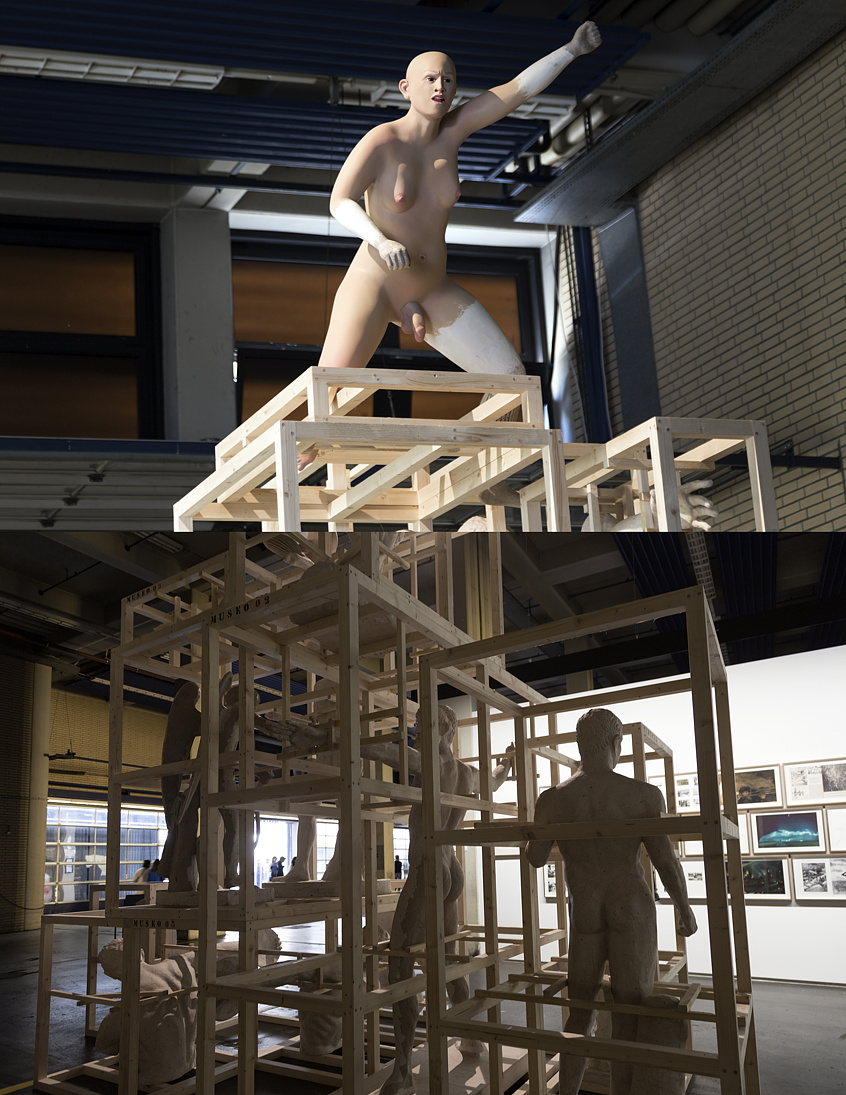The contemporary painter inhabits a world of computers. The Marxist question of the representation and reappropriation of the technology of production is now a matter of interface and coding. Or, as Daniel García Andújar puts it, “We no longer visit the archive. We live inside it.” But what happens to people who cannot access the operating system? What are the new forms of power and oppression, of visibility and opacity that digital technologies create?
García Andújar was born in 1966, during the last phase of the Franco dictatorship, when National Catholicism combined state violence with a new “stabilization and liberalization plan” intended to mark Spain’s arrival into the international market. One day they garroted dissidents, the next day they promoted consumerism on television. His hometown, in southern Spain near the Mediterranean, would soon be devastated by real-estate plundering and frenzied tourism. Holidays for the workers of fascism: You, too, have the right to enjoy your free time!
García Andújar initially worked in painting and design, in his twenties creating album covers for ruta del bacalao records, a kind of techno associated with synthetic drugs like MDMA and the Spanish transition of the 1980s. Eventually he stopped painting and went online, learning to program and becoming part of the first wave of Net art. His work extends into the realm of cybernetics and the reflections of artists like Hans Haacke and Antoni Muntadas on photography and television as systems of representation. In 1996, sidetracking traditional art spaces, García Andújar launched Street Access Machine®, a project for a mobile credit card scanner that would allow homeless people to beg in a world of plastic currency. The machine’s entirely fictional nature did nothing to deter Apple from inquiring about purchasing the technology.
In García Andújar’s work, ideas of community, communism, and assembly aren’t understood as political utopias but rather as training methods, ways of accessing hardware and questioning the property and epistemology of the archive. In a book project for documenta 14, for example, he sifted through information related to the reign of the Greek junta (1967–74) to create an image-text glossary of fascist grammar called LTI—Lingua Tertii Imperii (2016). Here and elsewhere, García Andújar’s goal is to reveal the dominant operating system, expose its flaws, hack it, use it critically, and open up spaces of resistance to the standardizing of language through which the world is created. To democratize democracy is to crack the code.
—Paul B. Preciado



